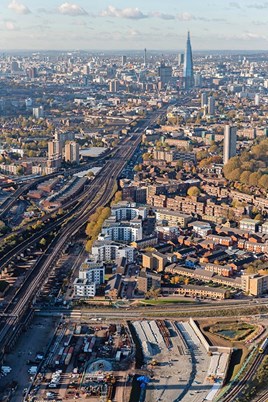There can be advantages in letting routes to concessions. Shaw lists a greater focus on innovation and cost control, more effective benchmarking and competition between routes, and a possibility that if there’s sufficient risk transfer then the route could be removed from the Government’s balance sheet. She says her proposed model would provide for:
■ The award (for typically 20-30 years) of exclusive rights to operate, maintain, renew and perhaps enhance railway assets, following a competitive tender process.
■ An upfront sum to be paid by a concession winner to the Government in return for an income stream from the railway assets.
■ Regulation with price control periods and a regulatory asset base to provide investment flexibility, spread capital expenditure of the life of the assets, and mitigate the effects of imperfect asset knowledge.
■ Clear risk transfer.
The concessionaire would need to operate within the remit of NR’s system operator and technical authority, and would have access to its route services directorate.
This all sounds very similar to the failed PPP (public-private partnership) structure imposed on London Underground in the 2000s, although these deals also involved considerable upgrade work. PPP triggered significant disruption by splitting operations from infrastructure management (which has already been done on the national network). The PPP companies had to spend considerably more than had been expected because the Underground network was in worse condition than expected. The deals were difficult to agree because of the need to be flexible over 20-30 years, and they did not provide incentives that were either challenging enough or clear enough to drive innovation.
Shaw suggests that NR’s Wessex and Anglia routes are the best candidates for concessions because they have little public subsidy and few planned enhancements. However, there’s a big difference between not having many enhancements planned and not needing major work.
The main line from Waterloo is widely regarded as being worn out and in need of considerable work. This work could involve heavy renewals or enhancements, but still amounts to considerable spending by somebody. If it’s renewals then the concessionaire spends the money. If it’s enhancements then it’s NR or government, with all the risks on delivery that Great Western is experiencing today.
To the east, there’s pressure to improve Anglia’s main line from Liverpool Street to permit regular ‘Norwich in 90’ services. It must also cope with growing freight volumes from Felixstowe to the rest of Britain, all of which serves to complicate what might at first sight be a simple case.
Concessions could work that include enhancements, if they can work closely with a government to influence train services. In this category, Shaw suggests the Welsh Valleys. There are plans to electrify the lines into the Valleys, which will demand new trains, but the Welsh Government is set to play a greater role by specifying what it wants from the train operator.
Although privatisation was mooted in the 1990s to reduce government’s role in railways, the opposite has resulted. Today there is much more detailed, daily control of train operators by the Department for Transport, Transport Scotland and the Welsh Government. Government now runs Network Rail, with the Transport Secretary appointing NR’s chairman and a special director to the board. The DfT’s Permanent Secretary is responsible to Parliament for funds provided to NR.
Government has long played a role in Britain’s railways, even before nationalisation in 1948. Look no further than the Regulation of the Railways Act 1889. Parts remain in force today, and the Act made it a legal requirement for railway companies to adopt block signalling, interlocking between points and signals, and continuous brakes for passenger trains. Another Act provided for fares at a penny a mile and a minimum number of trains calling at all stations. Today the Government still regulates fares and specifies minimum calling patterns for stations.
Shaw explains why she feels the Government is involved in railways: “Fundamentally, the Government’s involvement is a matter of basic economics - the railway is a vehicle for economic growth and social mobility, in which there is broad public interest that cannot, in all cases, be met through the operation of a competitive market. In other words, rail delivers public benefits, requiring the support of government to realise the wider economic benefits it has the potential to deliver.”












